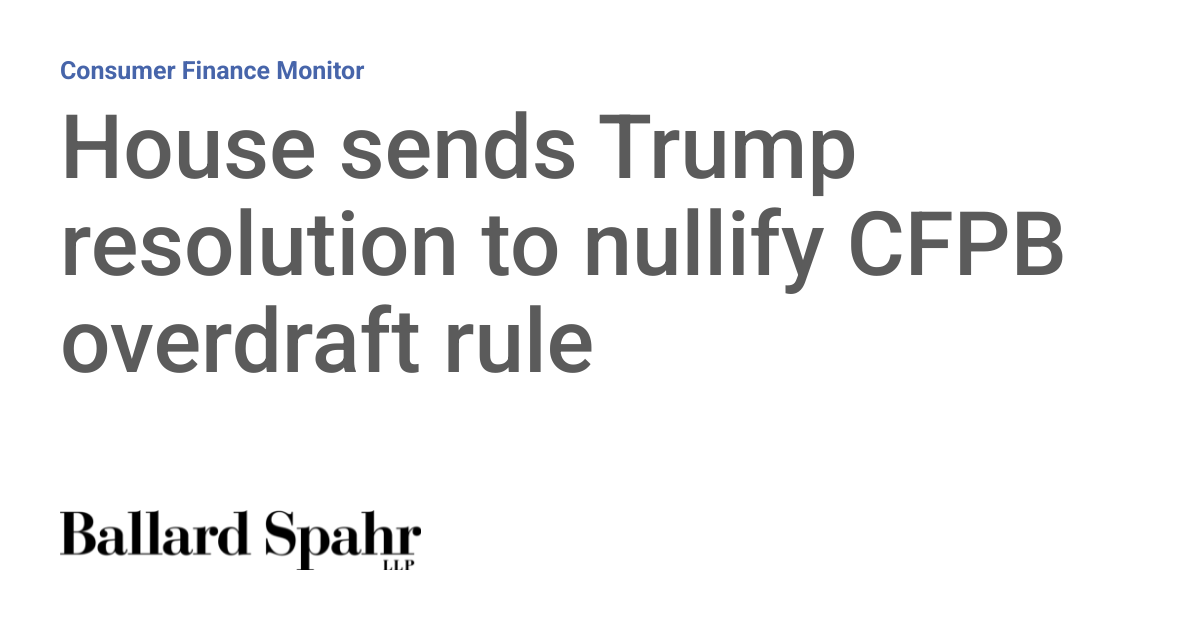Congressional Showdown: GOP Moves to Block Biden's Bank Fee Crackdown

The fate of the Consumer Financial Protection Bureau's (CFPB) controversial overdraft rule now rests with President Trump, following a decisive vote in the House of Representatives. On Wednesday, lawmakers passed House Joint Resolution 18 with a narrow margin of 217-211, setting the stage for a potential nullification of the banking regulation.
The resolution, which aims to overturn the CFPB's recent overdraft rule, reflects ongoing tensions between regulatory agencies and financial institutions. By advancing this measure, congressional Republicans have signaled their intent to challenge what they perceive as overly restrictive banking guidelines.
With the resolution now on the president's desk, the next critical step will be determining whether the administration will support the move to block the CFPB's proposed changes to overdraft practices. The outcome could have significant implications for both consumers and financial institutions across the United States.
